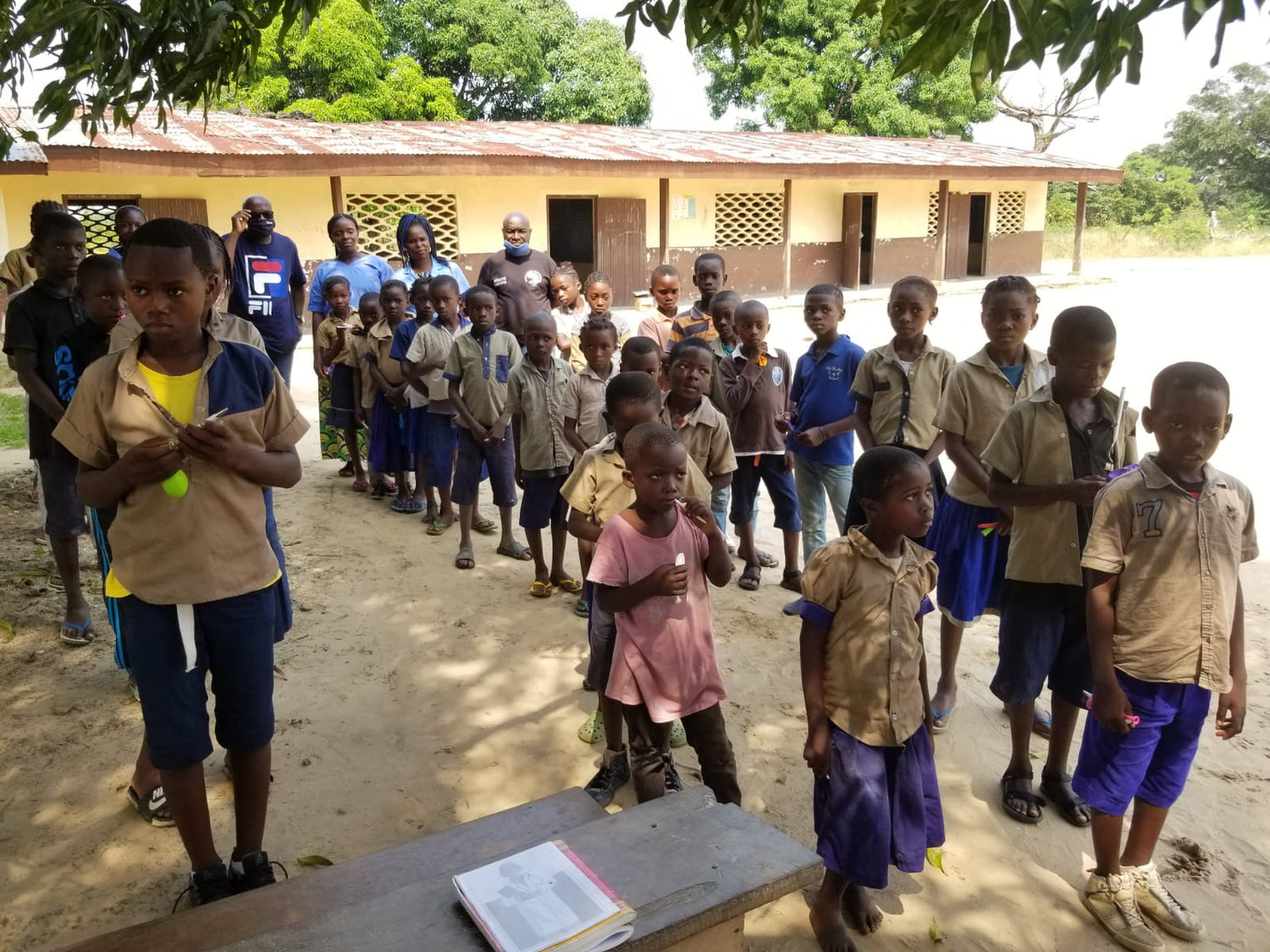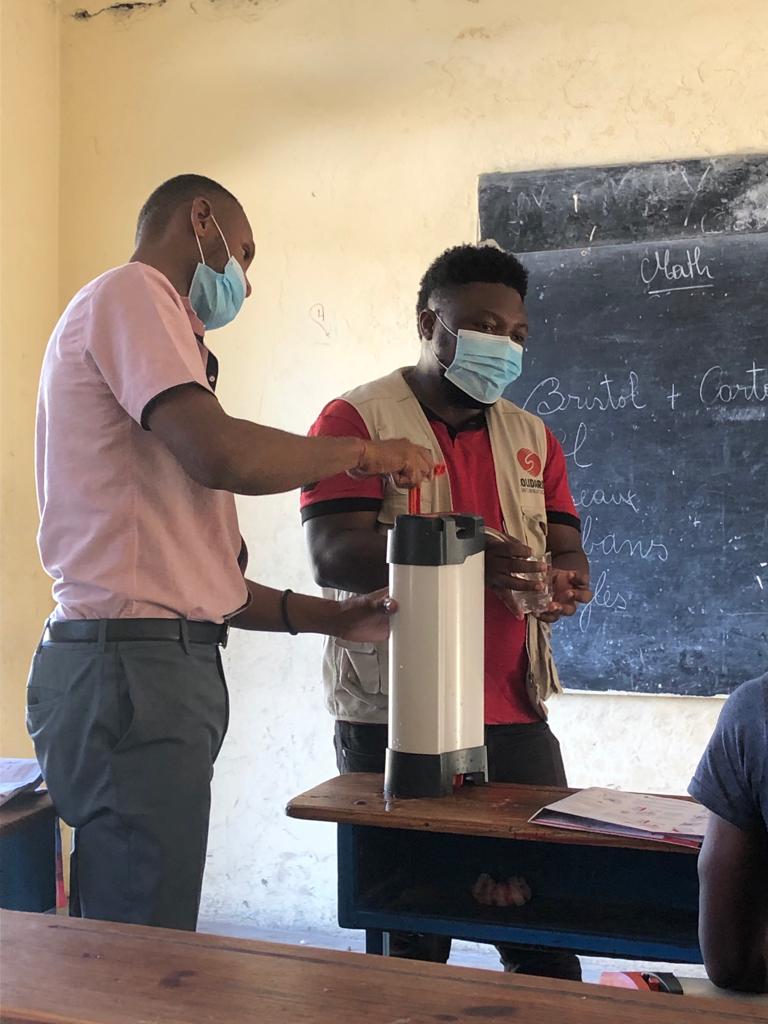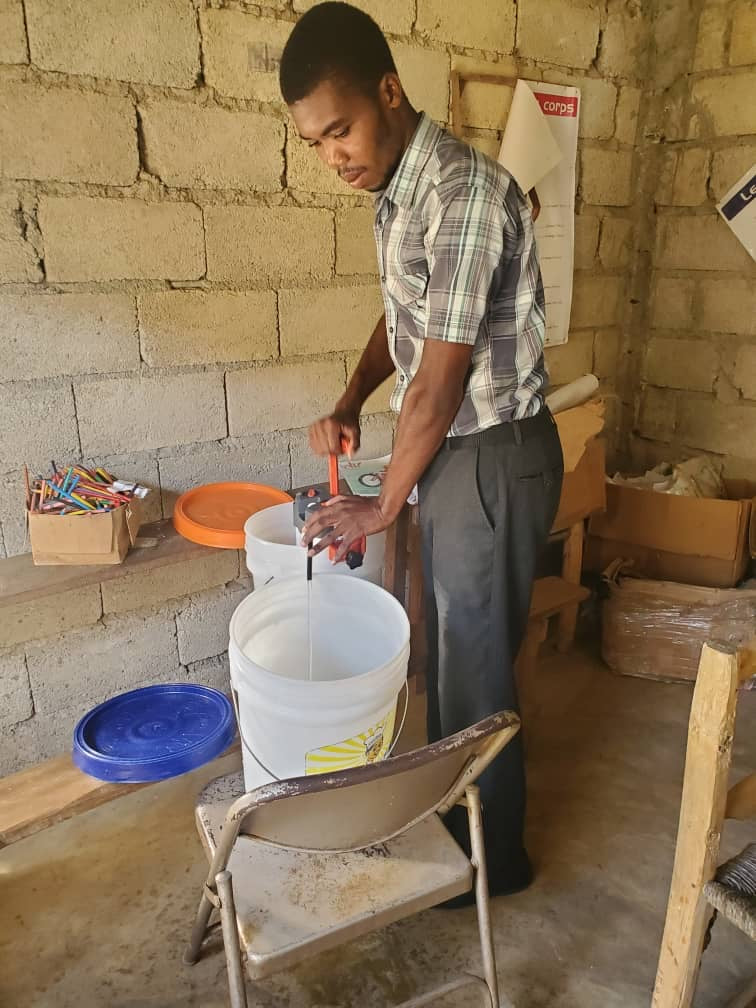
Making access to education universal
Education is a central pillar in humanitarian aid. It plays a key role in empowering individuals. It develops knowledge of the human body and raises awareness of fundamental rights, gender equality and social justice, thereby reinforcing the values of inclusion and diversity. It is therefore a fabulous tool for combating social tensions and reducing conflicts around the world by developing children's critical thinking and empathy. It also promotes the sustainable development of communities and territories by teaching resource management and environmental conservation. Education is also a valuable tool for reducing poverty by offering skills and economic opportunities to local people. By training local professionals, it helps to create networks of skills and knowledge that are essential for resilient and sustainable community development.
Equality for every child
Access to school is still too unequal around the world
Inequalities in education around the world are deep and persistent. They manifest themselves in terms of access, where many children, particularly in rural areas, conflict zones or developing countries, are excluded from the education system because of poverty, gender, ethnicity or disability. Moreover, the quality of education varies considerably from one country to another and even within the same countries, with marked differences in terms of infrastructure, teaching resources and teacher skills. Inequalities also manifest themselves in the persistence of gender stereotypes, limiting girls' access to education and perpetuating socio-cultural discrimination and prejudice. Finally, inequalities increase as one progresses through the education system, with decreasing enrolment and completion rates in secondary and tertiary education for marginalised groups, exacerbating social, economic and political disparities on a global scale. According to UNESCO, some 258 million children and adolescents worldwide are not in school, i.e. almost one child in five.
-
SOCIOCULTURAL FACTORS
Culture and traditional norms are sometimes obstacles to access to education for children, particularly girls, and to the acceptance of certain innovative educational practices.
-
VULNERABILITY AND ISOLATION
Precariousness and isolation make it difficult to intervene, as the day-to-day concerns of these people, who sometimes live in remote areas, are focused on physiological needs.
-
LIMITED RESOURCES
The lack of adequate educational facilities, teaching materials and teacher training compromises the quality of education provided to children living in remote or precarious areas.
-
MAKESHIFT ESTABLISHMENTS
The learning environments are not sufficiently healthy and safe, sometimes without access to drinking water, and lack adequate sanitary facilities and safe infrastructures.

Malala Yousafzai, campaigner for the right to education and the youngest winner of the Nobel Peace Prize
"A child, a teacher, a book and a pen can change the world".

Water purifier
✔️ Manual ultrafiltration at demande
✔️ Lightweight system and sécurisé
✔️ 3L/min and 180L/heure
✔️ 20,000L of water per ultrafiltration membrane
✔️ LOG 8 - 99.999999% efficiency: bacteria and protozoaires
✔️ LOG 5 - 99.999% efficiency: virus
✔️ Innovative integrated cleaning achieved in less than 30sec
✔️ Equipment can be dismantled and repaired
SCHOOL FOR LIFE
Clean water, a vital resource so precious for children's education
-
REDUCED DOMESTIC CHORES
In many cultures, children, particularly girls, are often responsible for collecting water for their families. By providing easy access to drinking water close to home or school, children's workloads are reduced. This allows them to devote more time to their studies and personal development. What's more, the provision of a self-contained, family water purification solution means that water can be collected as close as possible, reducing the amount of time spent on supplying water that is used to the detriment of education.
-
BETTER LIVING HYGIENE
Access to drinking water reduces inequalities in education by removing barriers to schooling. Alternative solutions, where water networks are absent or dysfunctional, improve pupils' health and concentration in class and reduce absenteeism. By reducing water-borne diseases, clean water also improves the general health of pupils, removing a major barrier to learning. In addition, school water projects mobilise communities around education to improve living and educational conditions in a sustainable way.
-
IMPROVED HEALTH AND VITALITY
Water is essential for maintaining children's energy and vitality, directly influencing their ability to learn and succeed at school. Good hydration helps the body and brain to function optimally, transporting nutrients, eliminating toxins and regulating body temperature. In regions where access to water is limited, dehydration can lead to fatigue, lack of concentration and reduced cognitive performance.
-
REDUCING INEQUALITIES
Providing clean water to as many children as possible is a very important factor in promoting the development of education. Children living in acceptable family and school conditions are more likely to have the same opportunities thanks to satisfactory living conditions. It is therefore a measure that reveals the inequalities imposed on children.
Our deployments in schools

SOLIDARITÉS INTERNATIONAL
ACCESS TO WATER IN SCHOOLS FOLLOWING A CLIMATIC DISASTER
Deployment of 60 ORISA® water purifiers in the Grande Anse region of Haiti to help rebuild a school following an earthquake. This humanitarian programme involves 4,400 pupils and 154 teachers who have a stand-alone solution for water purification in their school.

UN ENFANT PAR LA MAIN
PROVIDING WATER PURIFYERS TO HAITIAN SCHOOLS
Deployment of 10 ORISA® water purifiers in the Artibonite region of Haiti to combat educational deprivation. This humanitarian programme covers 14 schools, with a total of 1,462 pupils and teachers.

DEPLOYING ORISA®
You work in schools and with families to improve access to education for every child. Get in touch with us so that lack of access to clean water is no longer the reality for vulnerable children living in precarious conditions.

The benefits of ORISA® in schools
In schools, it is crucial to meet drinking water requirements for the day. One filter per classroom is enough to meet these needs, for both pupils and staff. The ORISA® purifier, as an innovative, autonomous and high-performance product, offers an opportunity to raise awareness among pupils of hygiene and the importance of water treatment. To ensure a continuous supply of clean water, it can be filtered daily in a clean, airtight jerrycan fitted with a tap. Pupils can then help themselves throughout the day, and the remaining water is stored in a tank for reprocessing the following day. However, it is essential to clean the jerrycan regularly to maintain the quality of the water.